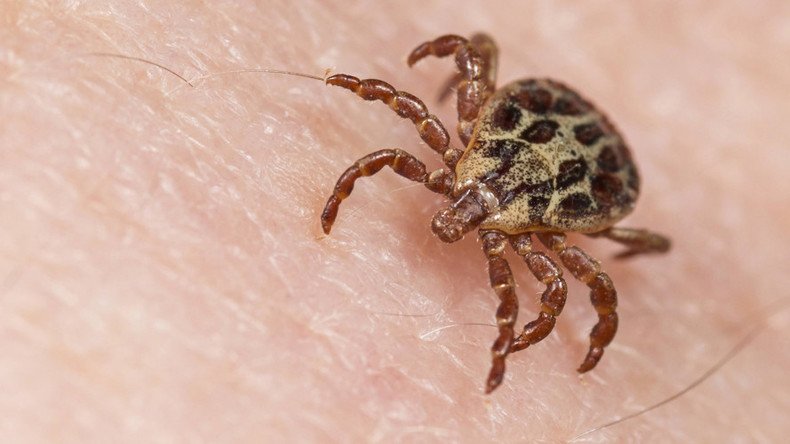Bug saliva ticks all the right boxes in heart disease battle

Scientists from the University of Oxford have discovered that saliva from ticks could be used to combat a type of heart disease which can cause sudden death in young people.
Published Tuesday in the journal Scientific Reports, the study details how saliva from the seemingly irritating ticks could be used to treat an often fatal heart disease called myocarditis.
Around 30 percent of people with the condition will experience heart failure which, unless they get a successful transplant, will result in death.
Spidagra? Venom of lethal Brazilian spider could cure erectile dysfunction https://t.co/LU4ZYa5ZEm
— RT (@RT_com) May 5, 2017
Proteins in the arachnid’s saliva have been shown to stop inflammation of the vital organ, which is a cause of myocarditis. Scientists have developed what they call a “bug to drug” formula in which hundreds of tick saliva proteins are made into yeast cells, so scientists can identify which proteins have anti-inflammatory properties.
The ticks’ anti-inflammatory proteins enable them to feed off their hosts for up to 10 days without being noticed. Ticks inject the proteins, known as evasins, into their host to avoid detection and it is these evasins scientists believe combat heart inflammation.
“Myocarditis is a devastating disease, for which there are currently very few treatments. With this latest research, we hope to be able to take inspiration from the tick’s anti-inflammatory strategy and design a life-saving therapy for this dangerous heart condition,” said Shoumo Bhattacharya, professor of cardiovascular medicine at Oxford and the study’s lead author.
Mosquitoes not that bad … when genetically engineered: See how insects battle #ZikaVirushttps://t.co/7fJQkz7j5bpic.twitter.com/DA7hJWtTds
— RT (@RT_com) January 20, 2016
Bhattacharya also believes that if such drugs are developed, they may also be able to “treat other diseases where inflammation plays a big part, such as heart attack, stroke, pancreatitis, and arthritis.”
One professor at the British Heart Foundation, which funded the study, has welcomed the potential impact the research may have.
“They may not be pretty, but these little creatures could hold the secret to better treatments for a whole range of diseases,” said Professor Jeremy Pearson, associate medical director at the BHF. “There’s a long way to go, but tick saliva looks like an exciting, albeit unconventional, area of research.”












